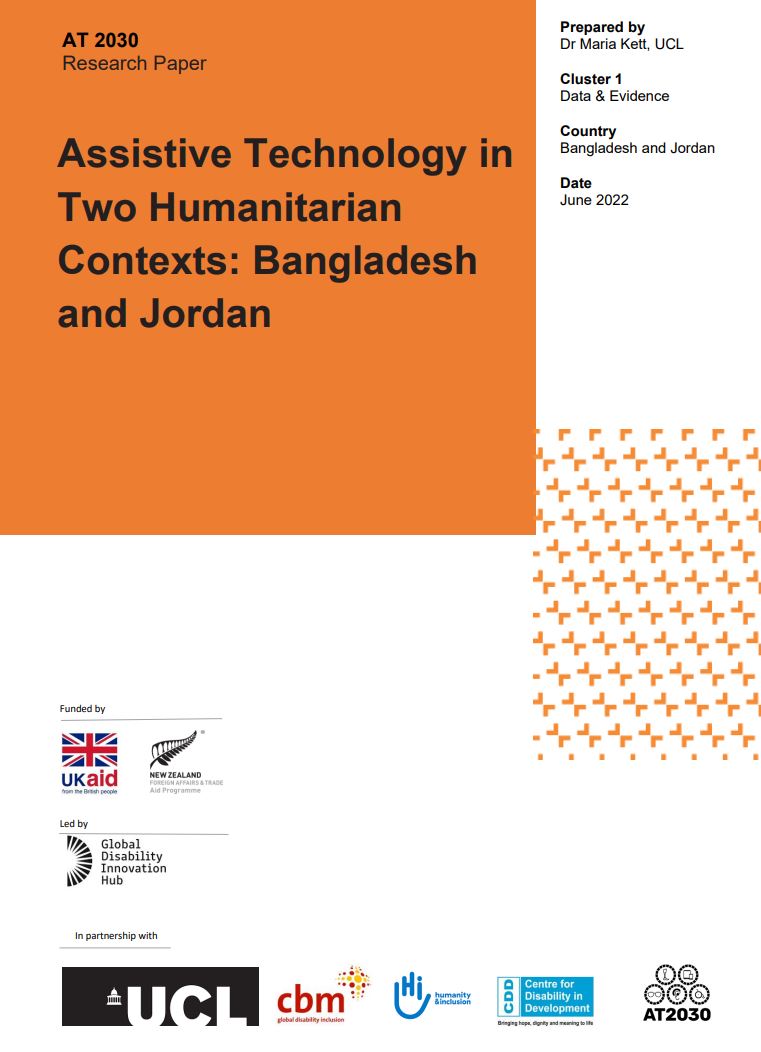Publications
-
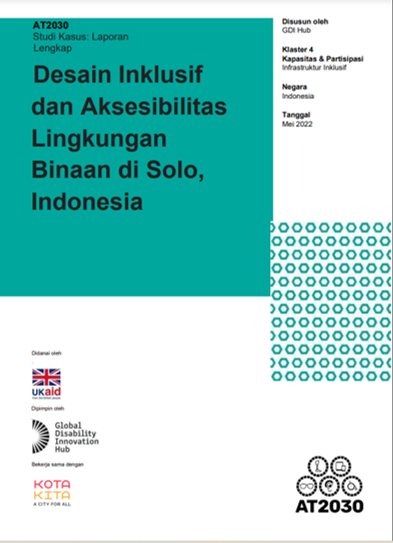
Inclusive Infrastructure Case Study Solo Indonesia written in Bahasa Indonesia
Global Disability Innovation Hub, Kota Kita, UK AidNov. 3, 2022IndonesiaCase Studies and ReportsThe third case study as part of the Inclusive Infrastructure programme on Solo, Indonesia. This is the Bahasa Indonesia version of the report. This case study builds a picture of the current state of inclusion and accessibility in the built environment and infrastructure in Solo through engaging local stakeholders and communities and exploring the understanding of and potential for inclusive design to address some of the current barriers to inclusion.
-
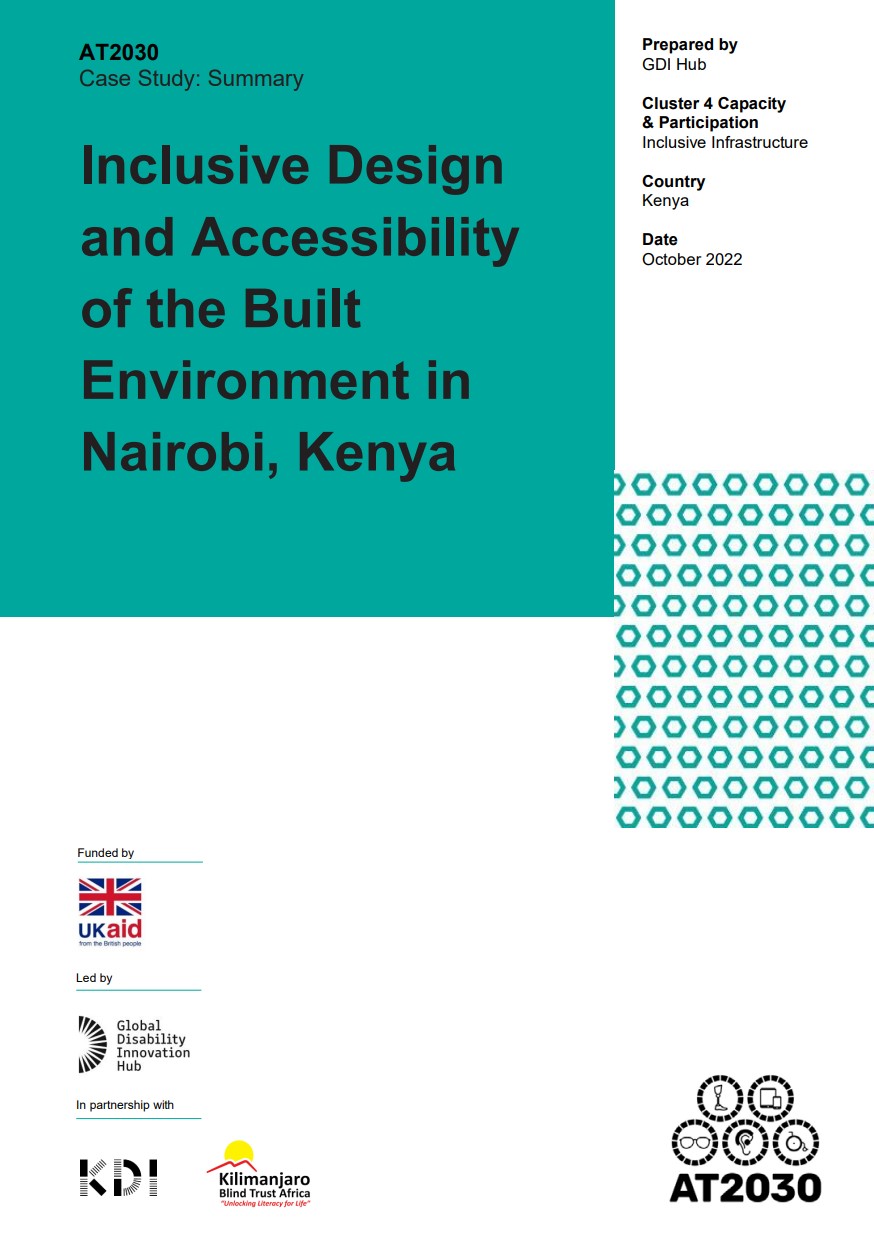
Inclusive Infrastructure Case Study Nairobi, Kenya
Global Disability Innovation Hub, Kilimanjaro Blind Trust, Kounkuey Design InitiativeNov. 3, 2022KenyaCase Studies and ReportsNairobi is experiencing rapid growth and investment in infrastructure which offers great potential to embed inclusion. The city has complex urban development challenges with roads and transportation commonly cited as major challenges. This case study explore the current state of the infrastructure provision - and makes recommendations for opportunities to imbed accessibility and inclusion.
-
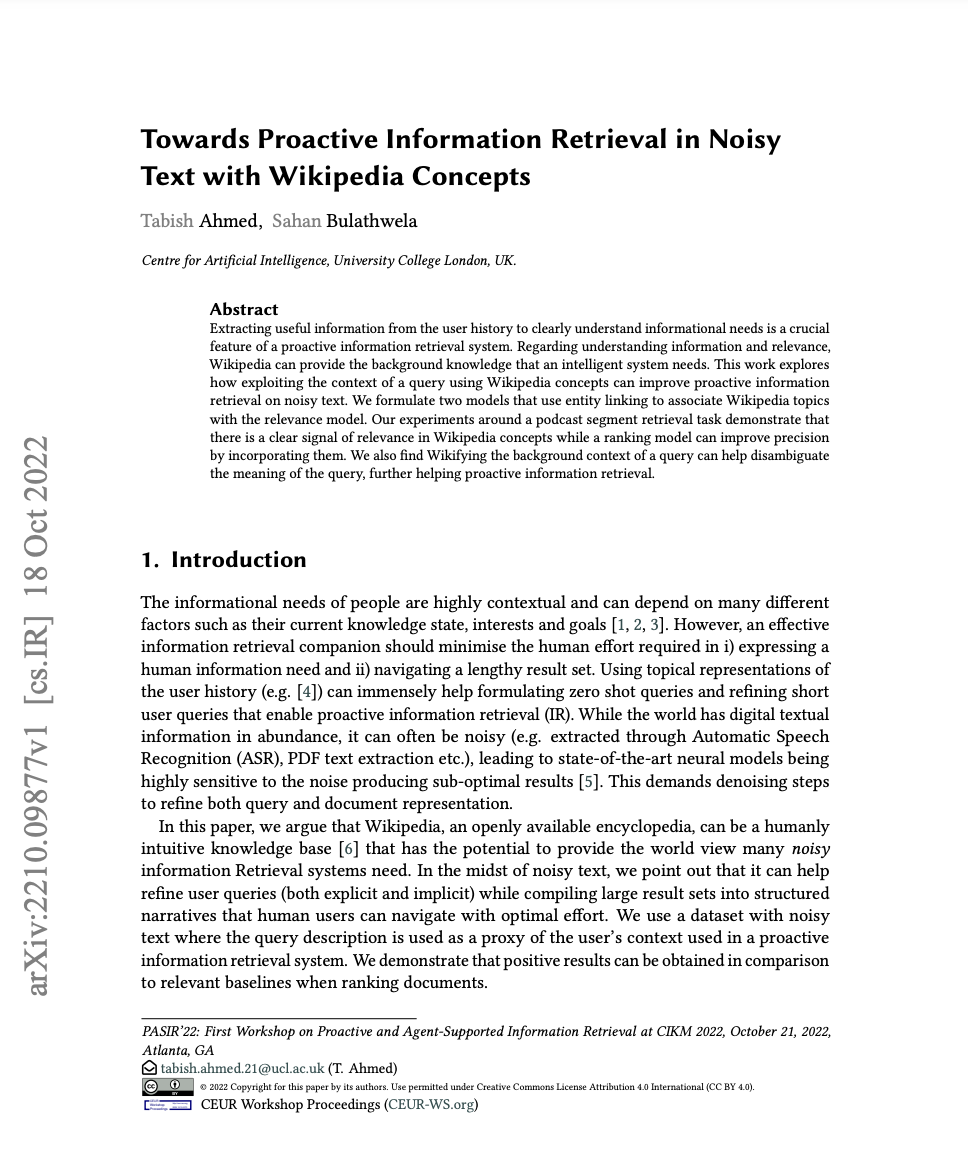
Towards Proactive Information Retrieval in Noisy Text with Wikipedia Concepts
UCL, Tabish Ahmed, Sahan BulathwelaSept. 18, 2022Academic Research PublicationsThis work explores how exploiting the context of a query using Wikipedia concepts can improve proactive information retrieval on noisy text. We formulate two models that use entity linking to associate Wikipedia topics with the relevance model. Our experiments around a podcast segment retrieval task demonstrate that there is a clear signal of relevance in Wikipedia concepts while a ranking model can improve precision by incorporating them.
-
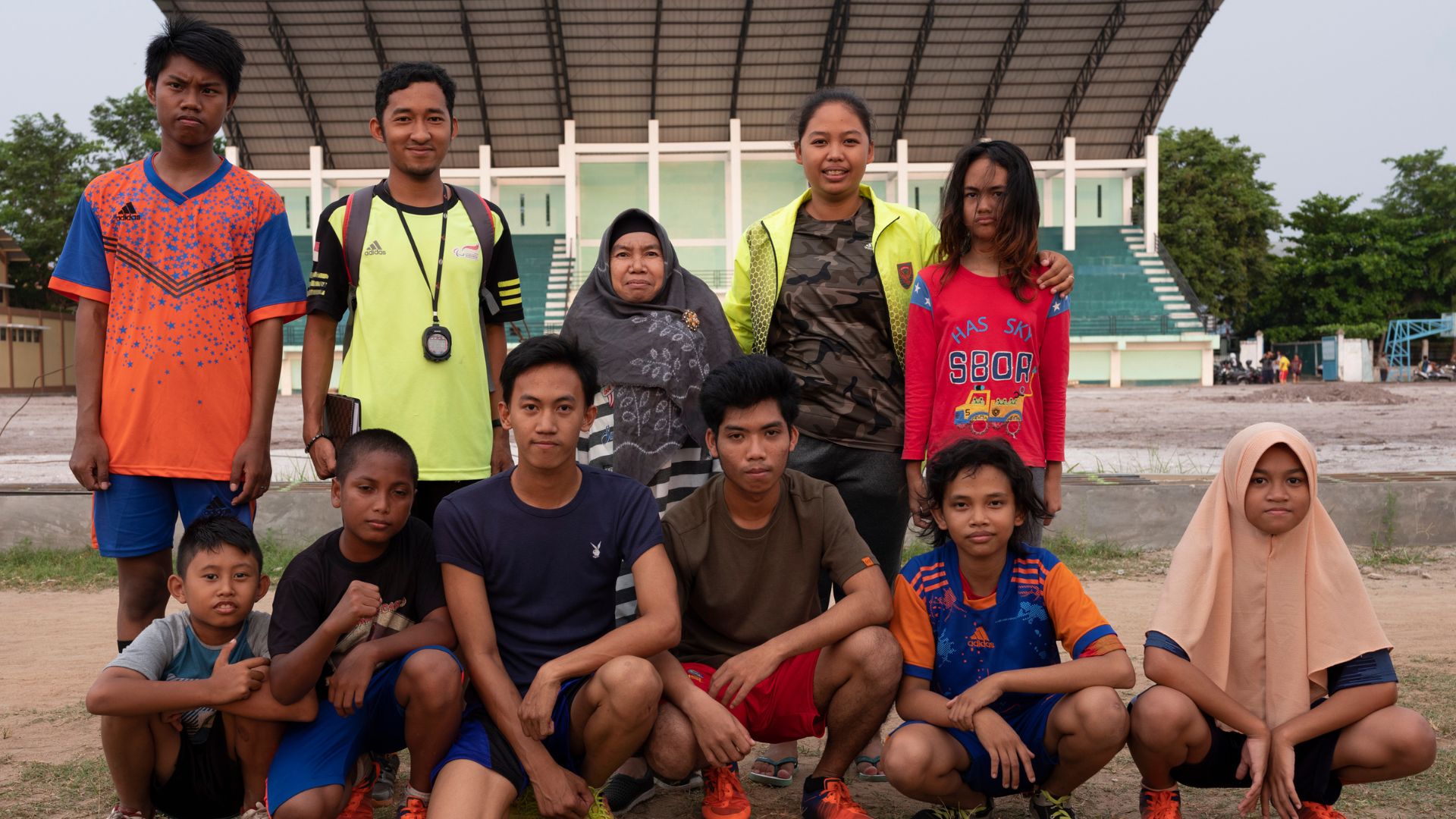
Paralympic Broadcasting in Sub-Saharan Africa: Sport, Media and Communication for Social Change
Dr. Jessica Noske Turner (LU London), Prof. Mufunanji Magalsi (UofMalawi), Jo TacchiAug. 29, 2022Academic Research PublicationsTokyo 2020 was boardcast to 49 territories across Sub-Saharan Africa. This commentry explores a historic moment in the development and expansion of Paralympic broadcasting and is at the same time an example of how Paralympic media is being harnessed as a pedagogical force and instigator for disability development agendas in Sub-Saharan Africa.
-

Tokyo 2020 Paralympic Games Media Evaluation Report by Nielsen
NielsenAug. 10, 2022Case Studies and ReportsInternational Media Evaluation Report - from Tokyo Paralympic Games.
-
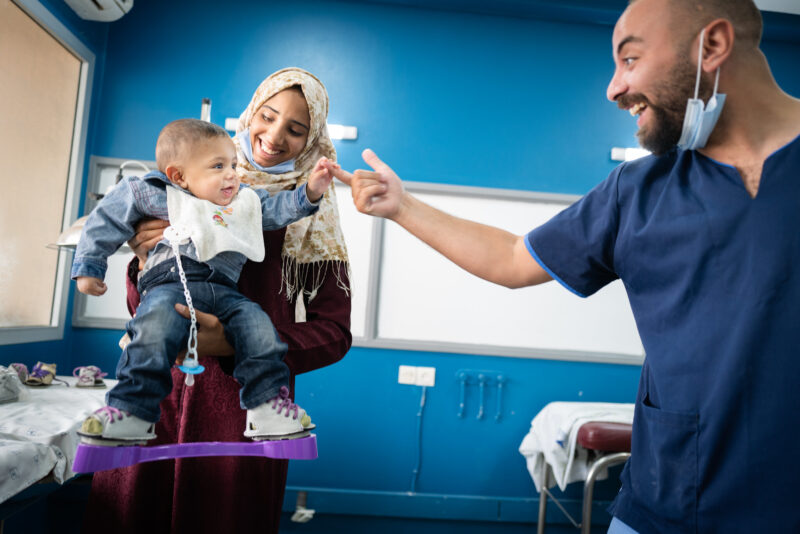
MiracleFeet Brace Healthcare Provider Guide
Miracle FeetAug. 9, 2022AT2030 ResourcesThis publication - designed for healthcare providers - explores the role of bracing in Clubfoot treatment. The resource includes the MiracleFeet brace story, key features of the MiracleFeet brace (including components and sizing), how to use the MiracleFeet brace, Ponseti Method Bracing Guidelines and how to instruct parents on proper use.
-
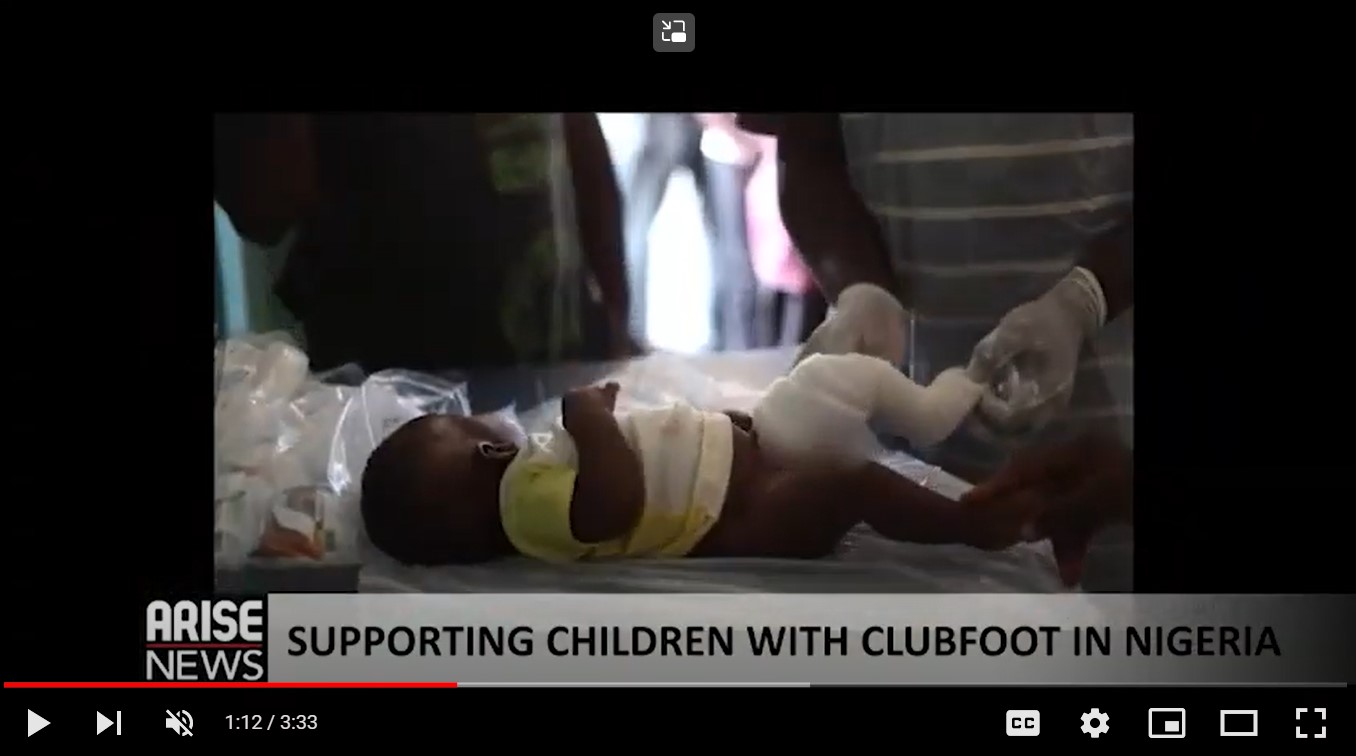
Nigerian Media Spotlights Clubfoot Treatment with MiracleFeet from our AT2030 AT Impact Fund
Arise News, KenyaAug. 2, 2022Case Studies and ReportsThe AT Impact Fund was established to better enable frontier technology solutions to reach people with disabilities in Africa, and to test business models that are most likely to succeed. While new technologies and materials have reduced the cost and complexity of assistive and inclusive technology, innovation and new business models provide an opportunity to reach populations previously excluded. Our unique combination of technical assistance and capital investment looked to test what was possible. In this news piece, hear more from one of our AT Impact Fund ventures, MiracleFeet.
-
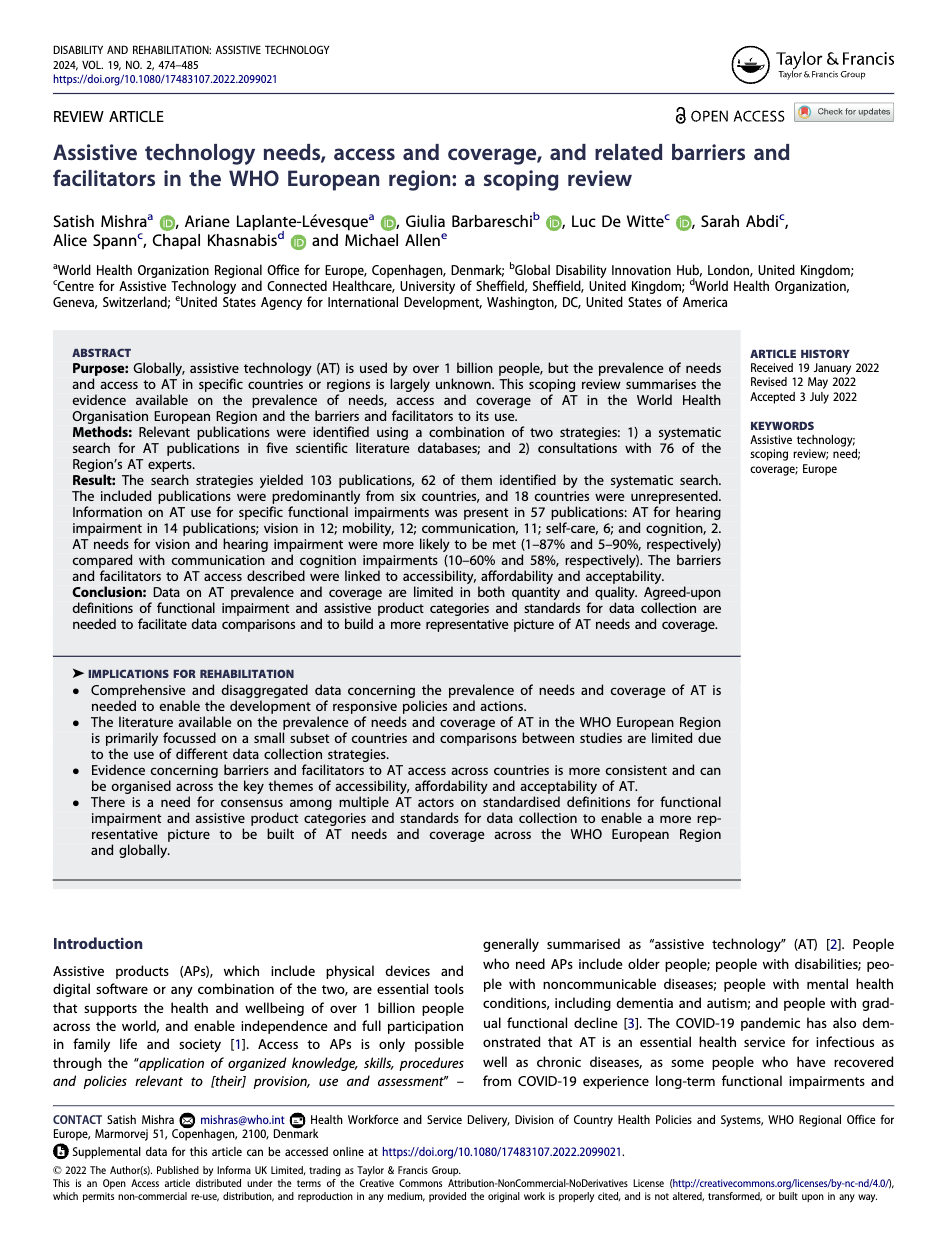
Assistive technology needs, access and coverage, and related barriers and facilitators in the WHO European region: a scoping review
Dr Giulia Barbareschi, Michael Allen, Satish Mishra, Chapal Khasnabis, Sarah Abdi, Ariane Laplante-Lévesque, Alice SpannJuly 29, 2022Academic Research PublicationsGlobally, assistive technology (AT) is used by over 1 billion people, but the prevalence of needs and access to AT in specific countries or regions is largely unknown. This scoping review summarises the evidence available on the prevalence of needs, access and coverage of AT in the World Health Organisation European Region and the barriers and facilitators to its use.
-

Para Sport Against Stigma: Research Report on the Tokyo 2020 Broadcasting in Sub-Saharan Africa
Global Disability Innovation Hub, Loughborough University, The International Paralympic Committee (IPC), University of MalawiJuly 26, 2022MalawiAcademic Research PublicationsThe AT 2030 Para Sport Against Stigma project aimed to examine how disability stigma can be overcome through Para sport so to increase assistive technology (AT) adoption in Africa. The project centred on a four-pillar approach: education, athlete development, Paralympic broadcast and cross-cutting research activity. This research report documents the research insights.
-
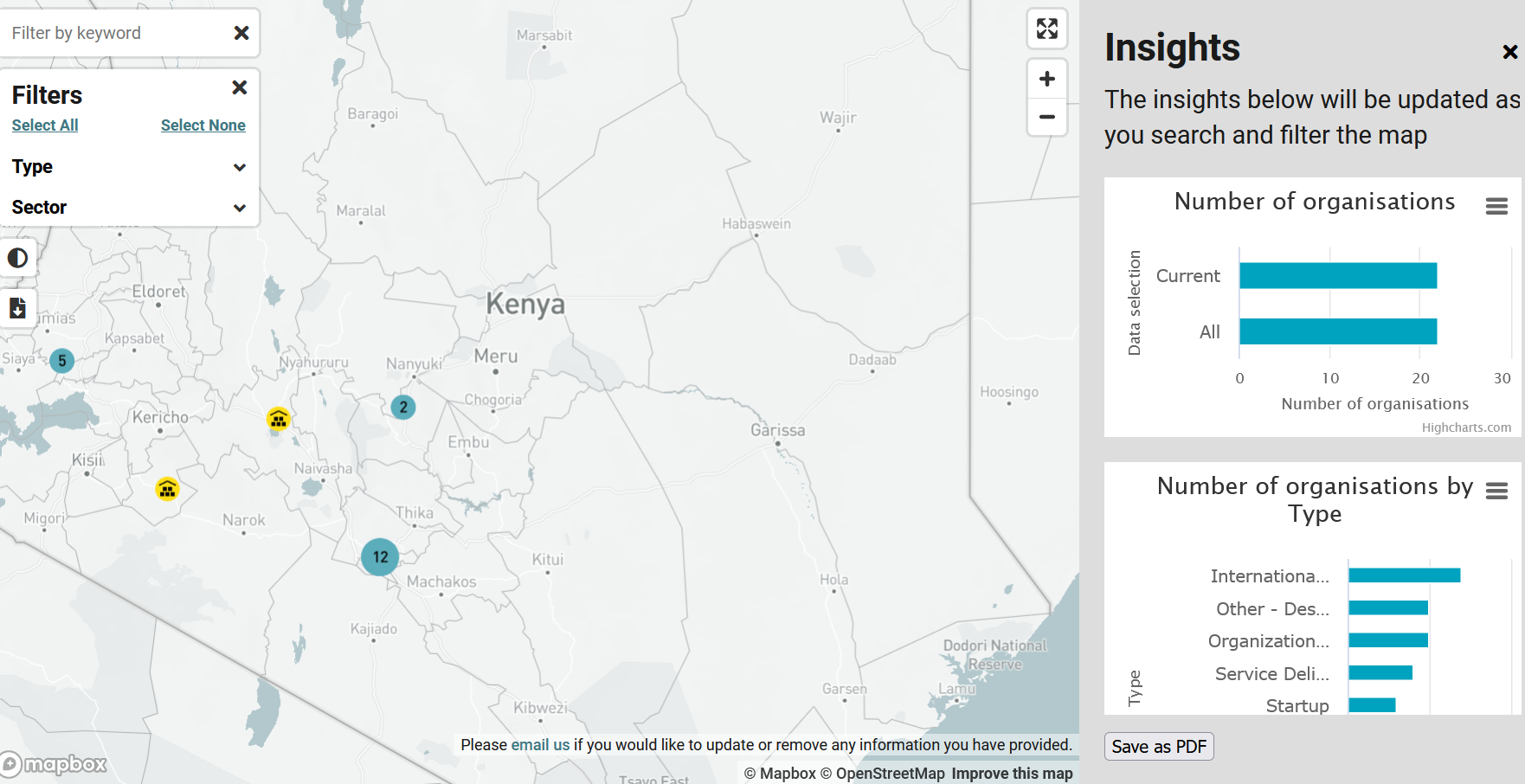
Kenyan Assistive Technology Ecosystem Strengthening
Global Disability Innovation Hub, UK Aid, BrinkJuly 25, 2022AT2030 ResourcesAT2030 is gathering information about stakeholders working in areas relevant to innovation, disability, and assistive technology in Kenya. The mapping is being led by GDI Hub with the University of Nairobi, and Maynooth University and on behalf of the Government of Kenya. This resource will contribute to improving assistive technology policies and systems in Kenya.
-
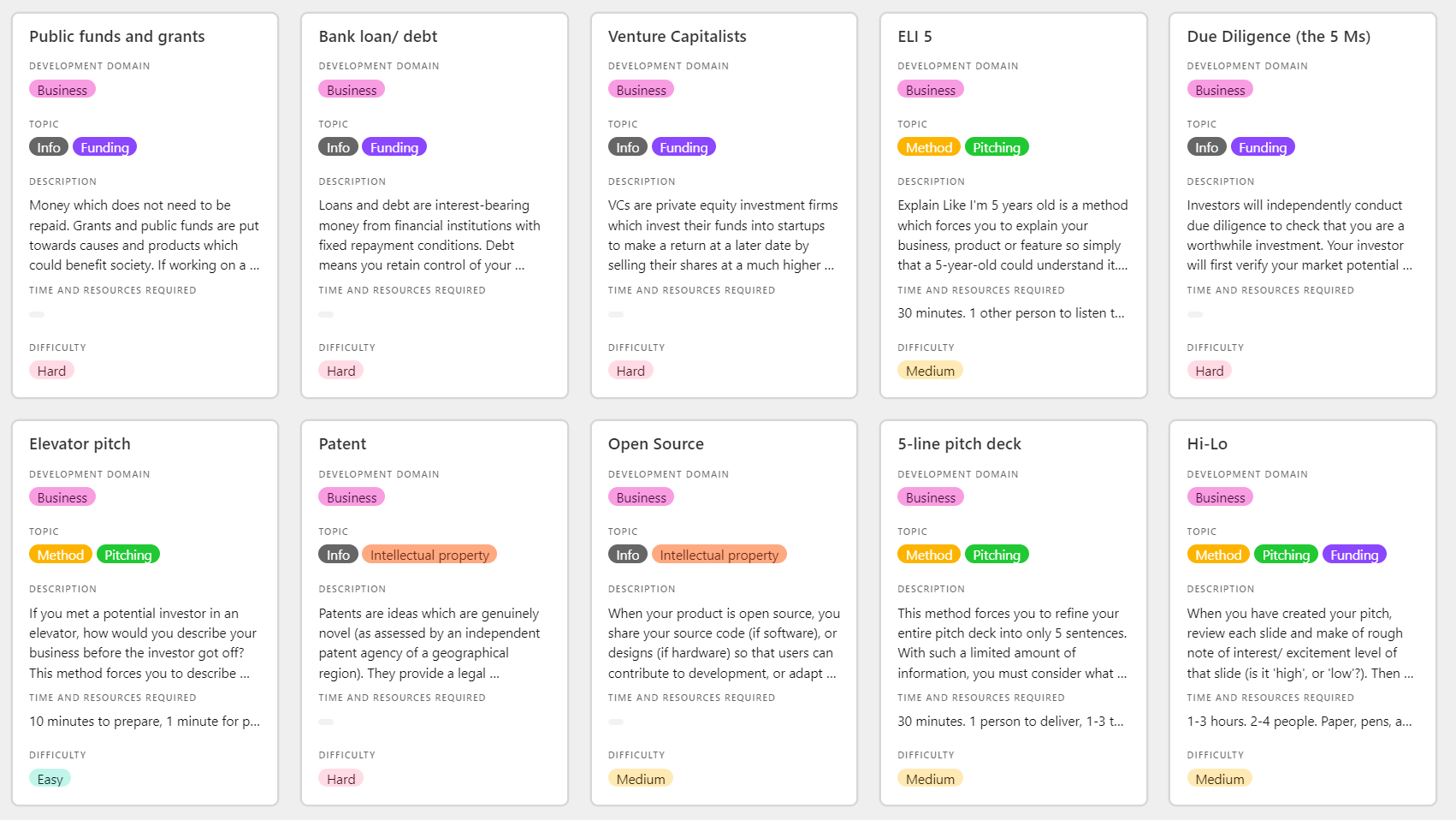
Inclusive Entrepreneur Toolkit
Global Disability Innovation HubJuly 25, 2022AT2030 ResourcesThe open entrepreneurship toolkit is a set of learning materials that can help entrepreneurs to solve problems by creating and experimenting with different strategies to build the entrepreneurial mindset you need to succeed.
-
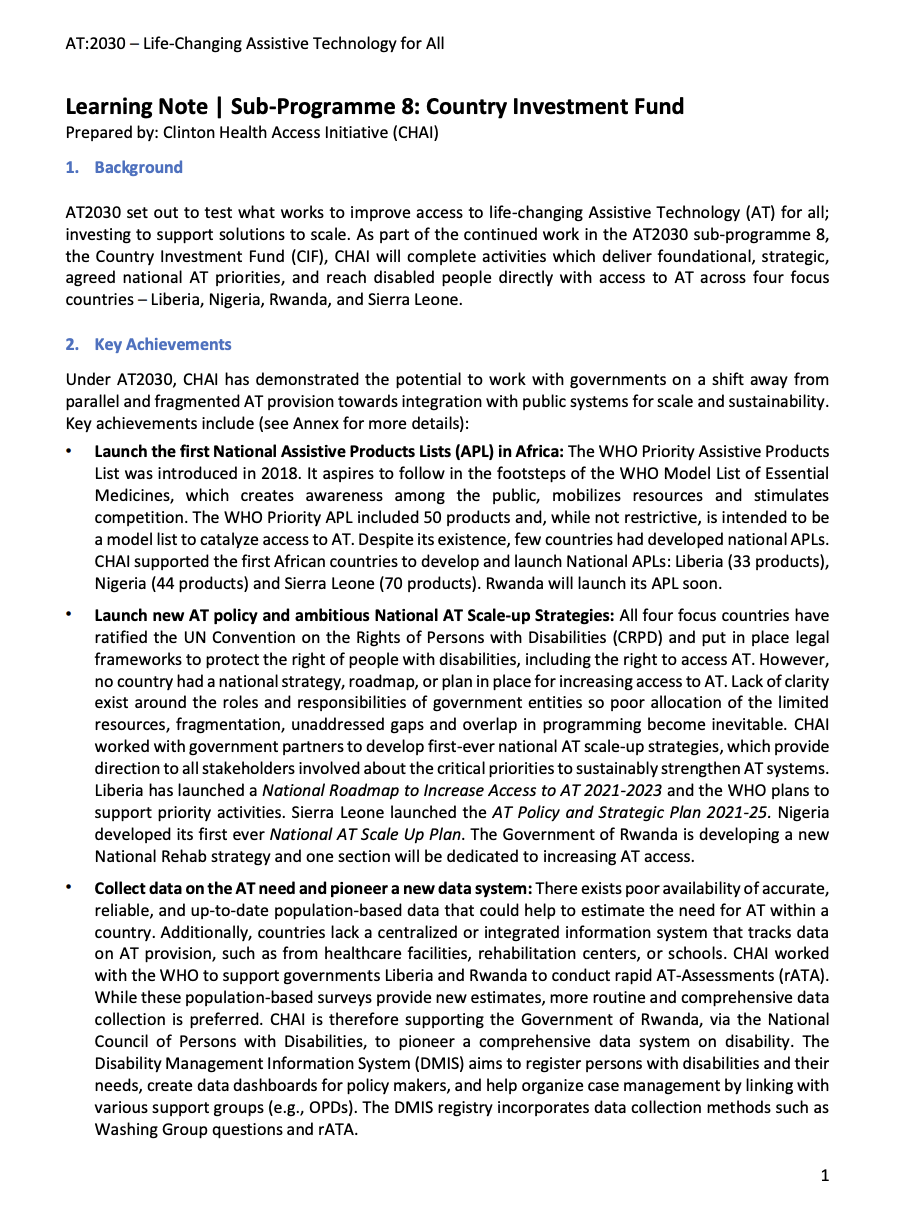
Learning Note: Country Investment Fund
Clinton Health Access InitiativeJuly 20, 2022Case Studies and ReportsUnder AT2030 Country Investment Fund, CHAI has demonstrated the potential to work with governments on a shift away from parallel and fragmented AT provision towards integration with public systems for scale and sustainability. Delivering foundational, strategic, agreed national AT priorities, and reach disabled people directly with access to AT across four focus countries – Liberia, Nigeria, Rwanda, and Sierra Leone.
-
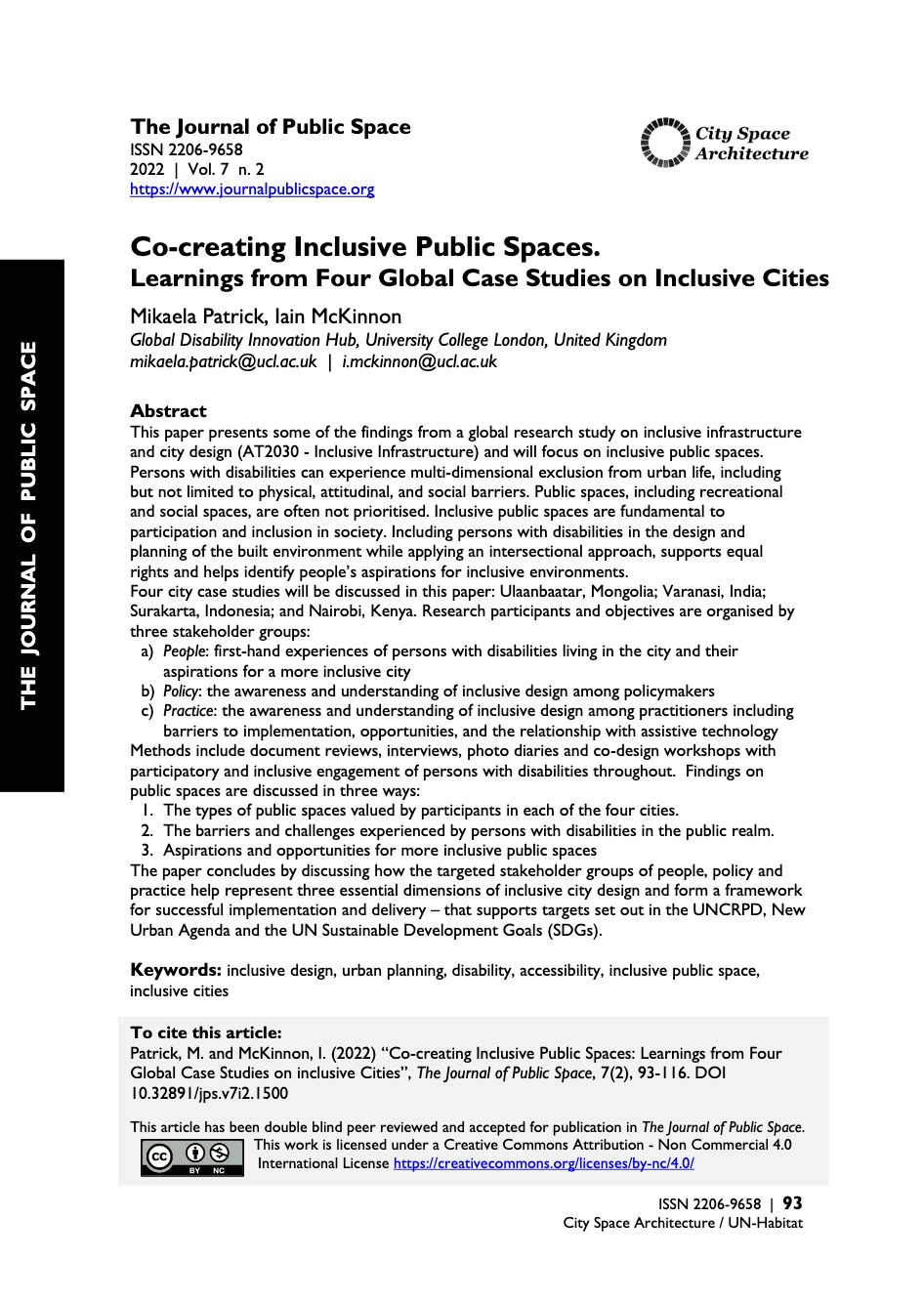
Co-creating Inclusive Public Spaces: Learnings from Four Global Case Studies on inclusive Cities
Iain McKinnon, Mikaela PatrickJune 26, 2022Academic Research PublicationsInclusive public spaces are fundamental to participation and inclusive in society. Including persons with disabilities in the design and planning of the built environment supports equal rights and helps identify people’s aspirations for inclusive environments. Four city case studies will be discussed in this paper: Ulaanbaatar, Mongolia; Varanasi, India; Surakarta, Indonesia; and Nairobi, Kenya.
-
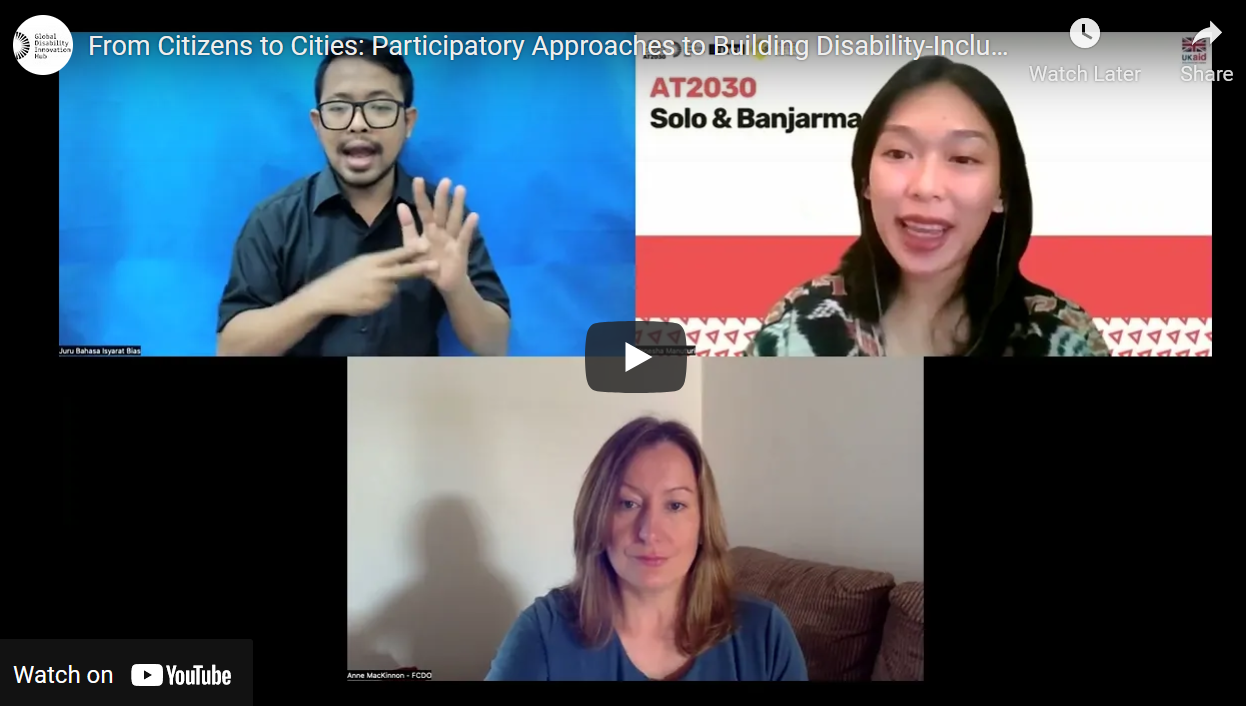
Digital Launch Inclusive Design and Accessibility of the Built Environment in Solo Indonesia
Kota KitaJune 13, 2022Case Studies and ReportsGDI Hub and Kota Kita are pleased to showcase the digital launch of the third case study as part of the Inclusive Infrastructure programme on Solo, Indonesia. Watch the launch in English or Indonesian.
-
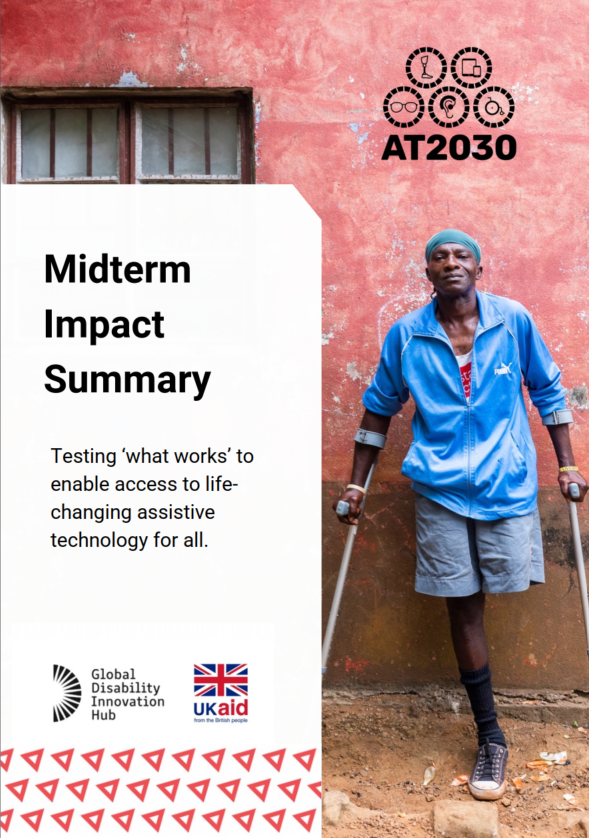
AT2030 Midterm Impact Brochure
Global Disability Innovation HubJune 9, 2022AT2030 ResourcesThe five-year AT2030 programme officially started in October 2019, and this Report takes stock of our impact to date and the diversity of successes delivered by the programme.
-
Assistive Technology in Two Humanitarian Contexts, Bangladesh and Jordan
Global Disability Innovation Hub, Humanity & Inclusion, CBM Global Disability Inclusion, Centre for Disability in DevelopmentJune 6, 2022Academic Research PublicationsDespite increased focus on the need for assistive technology (AT), very little is actually known about how people who need AT are managing in humanitarian contexts. This research found that the provision of AT (in this case mainly assistive devices) is ad hoc, and largely related to the access, availability and focus of NGO-funded projects in camps or communities. Devices alone cannot ensure wider inclusion – for that, there still needs to be attitudinal change, environmental adaptations, better provision of resources (including rehabilitation) and much wider awareness about the policies and legislation that support the rights of persons with disabilities, including those who have crossed an international border to seek safety and security.
-
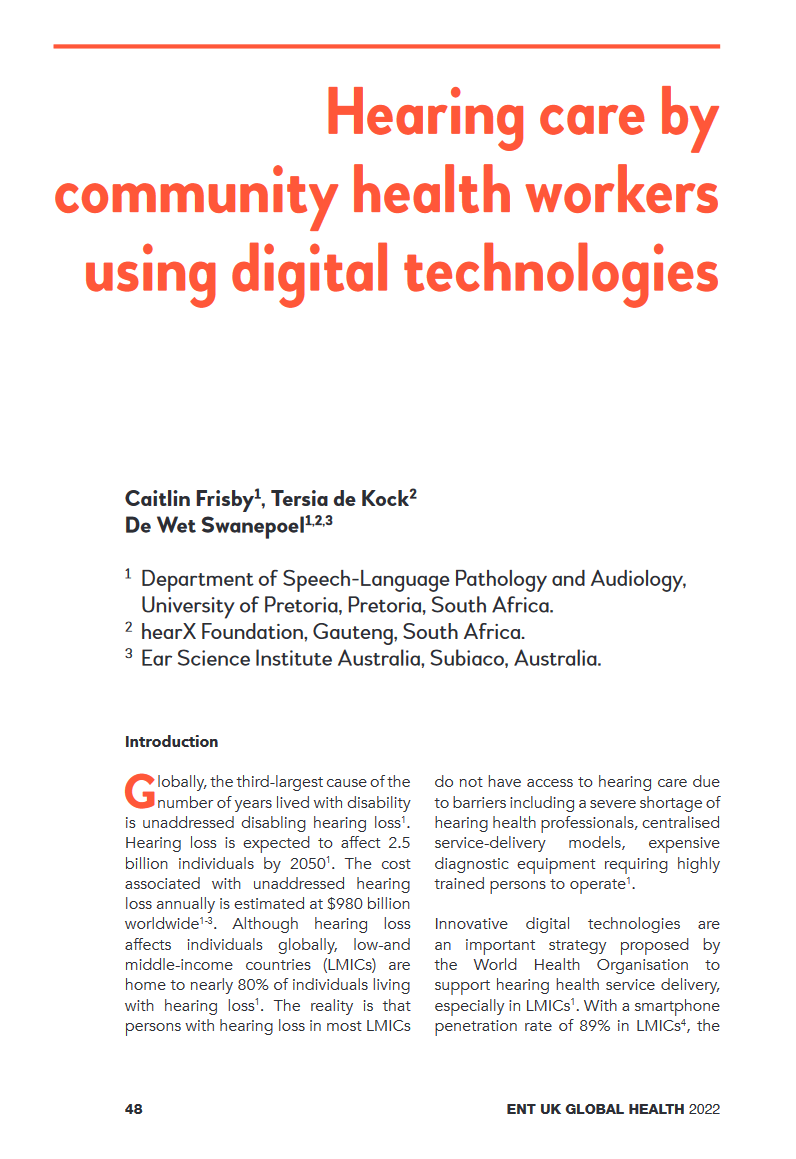
Hearing care by community health workers using digital technologies
University of PretoriaMay 17, 2022Case Studies and ReportsHearing loss is expected to affect 2.5 billion individuals by 2050. The reality is that persons with hearing loss in most LMICs do not have access to hearing care due to barriers including a severe shortage of hearing health professionals, centralised service-delivery models, expensive diagnostic equipment requiring highly trained persons to operate. This paper explores a new innovative model using a range of digital technologies operated by community healthcare workers to deliver end-to-end hearing healthcare services to adults.
-
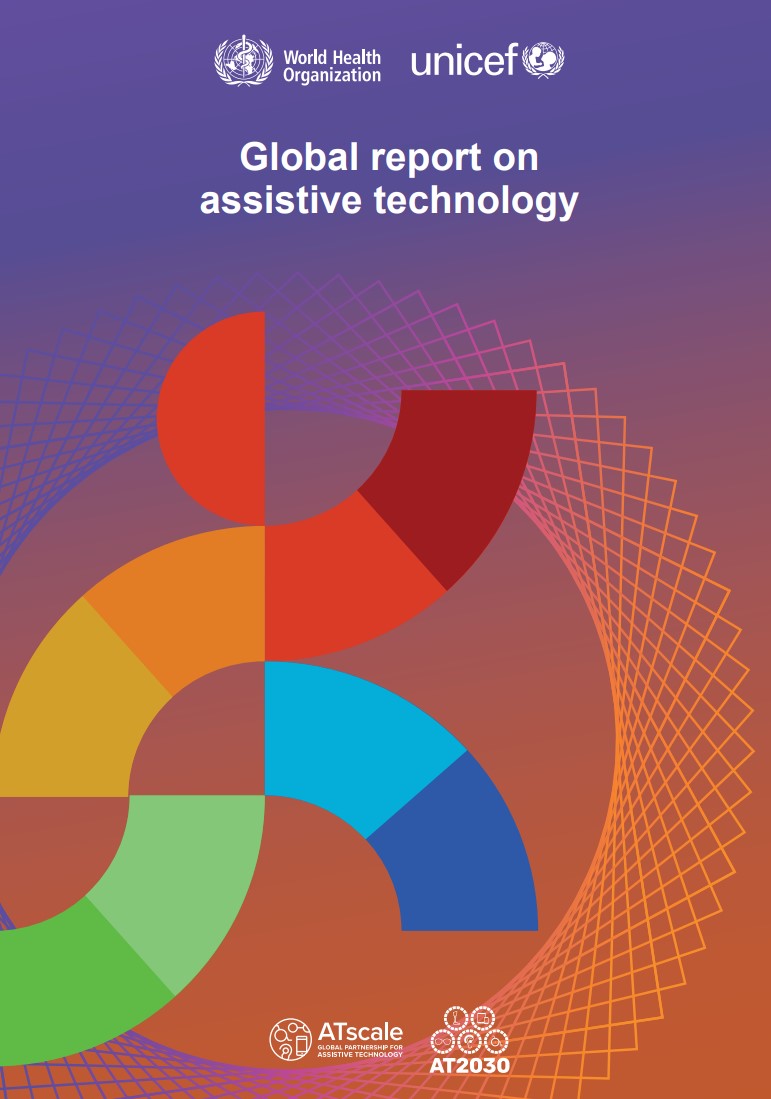
Global Report on Assistive Technology
UNICEF, World Health OrganizationMay 16, 2022Case Studies and ReportsThe WHO-UNICEF Global Report on Assistive Technology (AT) was launched in May 2022. The first of it's kind - the report marked a important milestone for the profile, understanding, impact, prioritisation and reach of AT. Built on much of the work from our UK aid funded AT2030 - which submitted over 150 insight papers and co-sponsoring the report alongside ATscale.
-
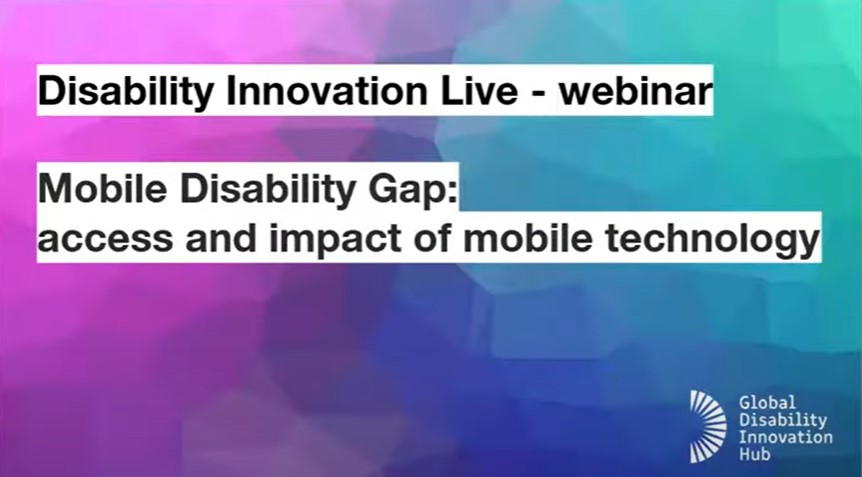
Mobile Disability Gap [webinar] access and impact of mobile technology
Global Disability Innovation HubApril 5, 2022AT2030 ResourcesDisability Innovation Live event, hosted by Global Disability Innovation Hub, exploring the Mobile Disability Gap - with specific emphasis on mobile as AT , mobile as data collection and mobile for information. We're all explore the impact and why this all matters - as well as the solutions to reduce the gap. In this session you can find out more about research learnings, role of mobiles in AT (as an enabler for digital AT), challenges in access & availability, barriers of mobile (specifically in global south e.g network, price point, reception), barriers to use of tech (and how this limits the possible impact on disabled people), e.g. accessibility of the mobile itself and the technology being created for mobile use.
-
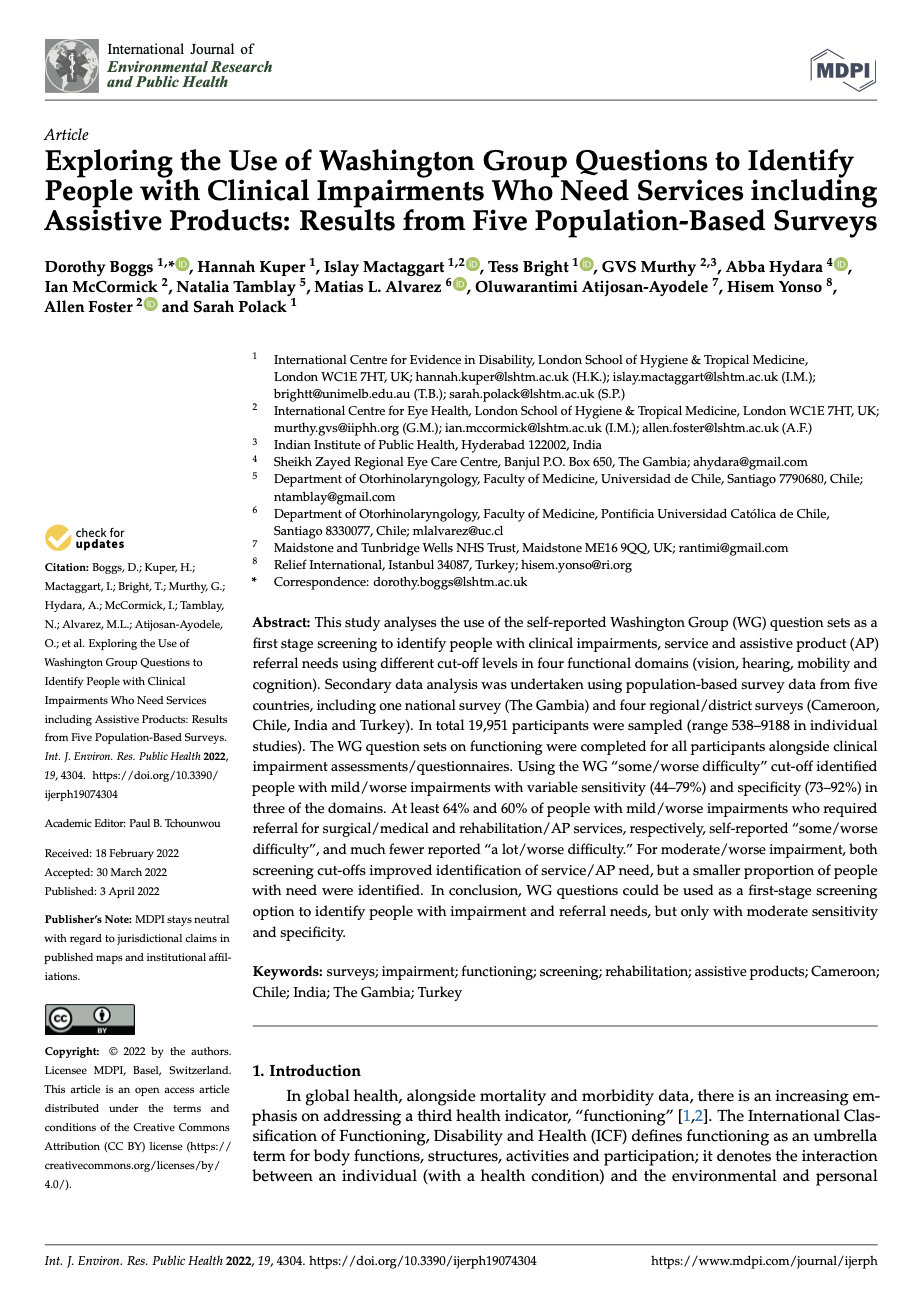
Exploring the Use of Washington Group Questions to Identify People with Clinical Impairments Who Need Services including Assistive Products: Results from Five Population-Based Surveys
Dorothy Boggs, Hannah Kuper, Oluwarantimi Atijosan-Ayodele, Abba Hydara, Ian McCormick, Tess Bright, Islay Mactaggart, GVS Murphy, Natalia Tamblay, Matias L. Alvarez, Sarah PolackApril 3, 2022Academic Research PublicationsThis study analyses the use of the self-reported Washington Group (WG) question sets as a first stage screening to identify people with clinical impairments, service and assistive product (AP) referral needs. Concluding that WG questions could be used as a first-stage screening option to identify people with impairment and referral needs, but only with moderate sensitivity and specificity.
Previous PageNext Page
